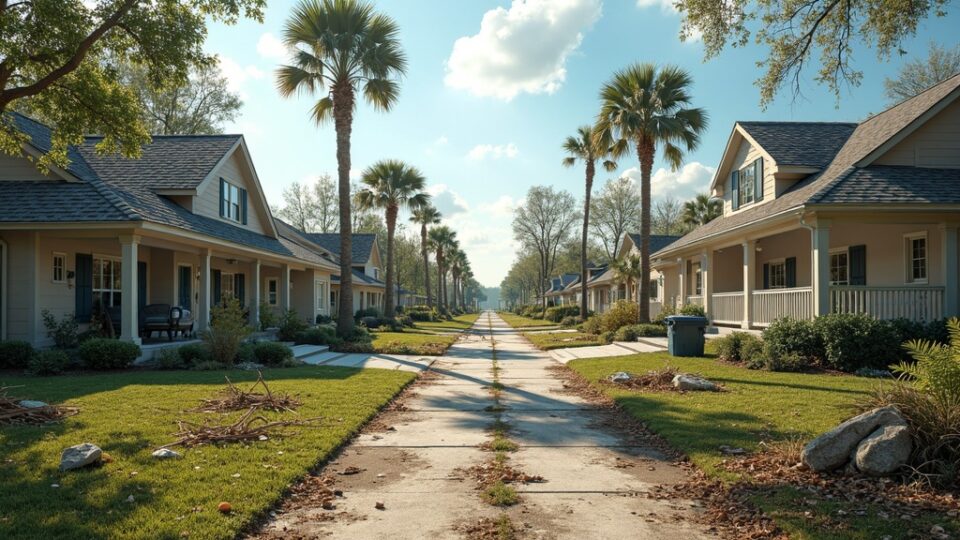
Experiencing Heavy Storms? Here’s 5 Things to Know About Claiming Hurricane Insurance

*Collaborative Post
The home is every family’s haven. Whenever a heavy storm occurs, you must repair or rebuild your damaged property as quickly as possible. However, insurance policies can sometimes complicate and even slow down the process.
After a hurricane, several unclear and vague terms have left many people in a tough spot. So, read on to find five things you should know about claiming hurricane insurance.
Let’s begin.
1. Homeowner insurance doesn’t cover flooding
Generally, damage caused by wind-driven water or rain or by the wind into your home via the doors, roofs, wall holes, and windows is covered by homeowner insurance. However, damages due to water or flood that rises from an overflow of a water body, such as a storm surge, aren’t covered by homeowners insurance.
To better understand what is covered and what is not, you can contact your local hurricane insurance claims lawyer to know what expenses are covered.
2. Ensure you document everything that happened before and after the hurricane
When filing for a hurricane damage claim, the insurance company would require you to submit information about your repairs, home condition, and lost personal items. With a complete inventory before the hurricane, including receipts showing repairs, and other pieces of evidence, you might find it easier to be compensated for your losses.
Before the hurricane season starts, a good idea would be to take pictures of your home’s exterior and interior. Additionally, you can create a comprehensive inventory that lists every item in your home and the amount you paid to get them.
Also, include copies of appraisals or receipts in your inventory if you have them. If you want to protect your information, a good suggestion would be to keep a copy of these records inside a waterproof container or online in an account protected via a strong password.
After the hurricane or storm, the insurance company would likely secure your property with plywood, tarps, or other similar materials. So, ensure you take videos and pictures of the scene before you start emergency repairs. This will give you a good record of how your home looked after the hurricane.
3. You might qualify for a state or a federal disaster relief
Apart from insurance claims, there is the possibility of you qualifying for several state and federal disaster relief programs. The Federal Emergency Management Agency (FEMA) and other agencies usually give financial assistance to hurricane victims who are underinsured or uninsured.
Also, the United States Small Business Administration provides long-term and low-interest loans to renters, homeowners, and businesses after a natural disaster. You can use such funds to replace or rebuild your home when eligible.
4. Auto insurance covers flooding
When your car insurance covers comprehensive coverage (this is insurance against types of physical damages that weren’t caused by accidents), then flooding can be included.
In most cases, when the flood is terrible, the insurance company would declare a total loss of the car and thus pay the claim for the car’s entire value, excluding the deductible.
5. You might not get paid the total value of your property
You must know that insurers can only pay you up to the policy limits. When you buy basic insurance policies (barebones), you might lose out on getting fully compensated. Your chosen policy would also limit the amount you can pay for specific types of loss, such as your personal belongings inside your house.
This is why accessing the value of claims is more complex. For instance, your priceless family heirlooms might not be worth as much to the insurance company as they are to you. So, you might receive your items’ actual cash value (ACV) or the replacement value.
When an insurer pays the actual cash value, you will be compensated for the pre-storm and depreciated value. However, when you are paid the replacement value, you will get the amount it costs to obtain a new one or rebuild it.
But, insurance companies often try to undervalue assets during property damages claims. So, if you think your settlement is unfair, you should consult a professional compensation lawyer.
Conclusion
About seven million homes are at risk of being involved in hurricane or storm damage throughout the United States. Millions of homes can be damaged by storms, wind damage, flooding, and other hurricane-related issues.
Whether you are hundreds of miles inland or coast, you might risk being involved in hurricane damage. The tips mentioned above will help you ensure that your home insurance covers hurricane damage or when you have been involved in hurricane damage and are seeking coverage.
*This is a collaborative post. For further information please refer to my disclosure page.





